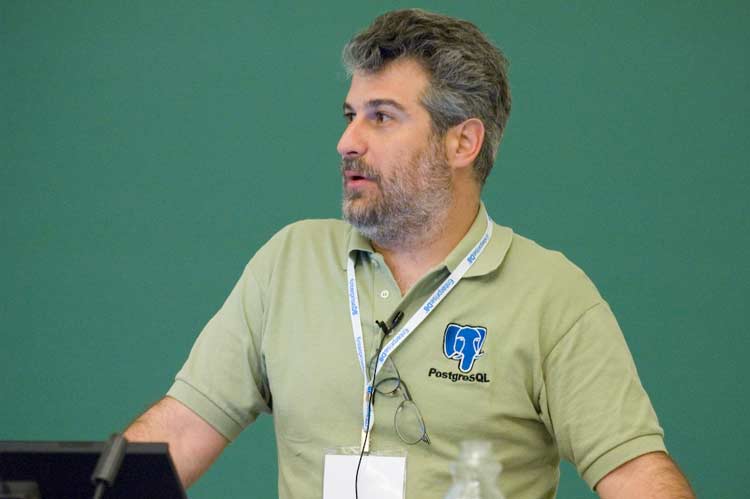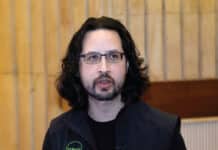
Maintaining an open source community has quite a few challenges. So how does a good community leader bring harmony to a massive group of people spread across the globe? Bruce Momjian, co-founder of PostgreSQL Global Development Group and senior database architect at EnterpriseDB, answers this in detail in an exclusive conversation with Rahul Chopra and Jagmeet Singh of OSFY. Edited excerpts…
What is the secret behind the Postgres community working together so efficiently?
To make your community happy to work for you, you need to maintain a culture of service.
There are multiple types of leaders. You can find a visionary leader like Steve Jobs, an institutional leader like Jack Welch, an inspiring leader like Oprah and a servant leader like John Willard Marriott. Each of these leadership types suits in different industries. You probably do not need a servant leader in technology, because it does not have much human interaction and needs innovation. You, therefore, need to have a visionary leader. Similarly, in the service industry, you need a servant leader because, effectively, all the employees in this segment are servants to their customers.
Leaders need to train people according to their industry. People do not perform actions by accident. In fact, they are trained to envision, institute or serve the customers and are also trained in the necessary skills in a good manner.
If you do not treat your employees well, they are not going to treat your customers well. This is like a one-on-one reaction. Organisations adopt this method of success. And, undoubtedly, this is vital to grow a community.
Everyone has some deficiencies, but when you interact with somebody and are able to bring out the best and minimise the deficiencies in that person, you succeed in a big way. This is what we consider as the Postgres community.
Does it help to have local communities of developers, or is it good enough to have just users?
We like to drive what we call an ‘echo effect’, where engineers get signals from multiple directions to deploy Postgres. That does not happen if just the government says something or the industry says something. What we need is an ecosystem, where everything feeds on everything else.
The idea of having a monthly meeting in a large city like New York, Mumbai or New Delhi is incredibly important because it tells the developer community that this is where the action is, and this is where the future jobs are going to be.
Having a user group is good, but we need developers, companies and the government to create the ‘echo effect’ and say that this is what you need today.
In this entire journey, was there ever a make or break situation for the team?
When I am with the core team members, I am always paranoid and have fears like what are all the risks, how could we get exposed and what are the terrible things that can happen? Just a year ago, I used to have thoughts that some large companies would come along and just hire all our key engineers. But, now, I do not think this is going to happen in the future. We have a good distribution of companies, we are not exposed to only one or two firms, and we have a large number of volunteers.
I was also scared in the recent past that some of our assets would get compromised and some of the important credentials would be leaked. Likewise, patents are my major point of concern. It is not an issue in India, but a vital thing in the US. Software patents in the US market are so broad that it is difficult to know whether you are infringing or not.
Having said that, I am not sure that I see any risks now, in working on Postgres.
Lastly, what would be the key learnings that you would like to share with other communities trying to drive their own open source projects?
There was a six-month period years ago, when I kind of backed out of all my projects. I did not get involved in emails and would get worked up when I saw unusual things happening in the open source world. I felt then that the harmony that we had in the past had disintegrated, and I could not bring myself to re-engage with the community. What I learnt from that experience is that the leadership of the group has to really set a tone that is balanced.
Russian author Leo Tolstoy said, “All happy families are alike; each unhappy family is unhappy in its own way.” A happy open source project really has to have all the things in all the right measures to really thrive.
A lot of open source communities have been dysfunctional. Sometimes they become dysfunctional because their leaders get too strong, or sometimes because there is a lack of structure and the individuals start fighting against each other. That can become a major problem for growth.
You need to set a tone where everyone in the community feels valued and considers that all their contributions matter, and that this is part of something that is important to their lives.
People can only contribute to a project in a community if they feel like this is the best use of their time, and this is what they can do well in their life. That happens only when you have the kind of community we have, which makes people feel this way, very effectively.
So, the more you empower people, the more dedication you will receive from them to uplift the community.
Apart from his leadership lessons, Bruce revealed the benefits of opting PostgreSQL and its future release. You can catch the full coverage from the April issue of Open Source For You. For instant subscription, visit Subscription Corner today.

















































































